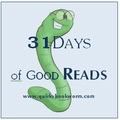The Ghost Map: The Story of London's Most Terrifying Epidemic--and How It Changed Science, Cities, and the Modern World
In 1854 sanitation was almost unheard of. Sewers were barely functional, and most excrement was still thrown into cesspools or dumped in the streets. Johnson goes into detail about the occupational hazards of rag and bone men and the "nightsoil" men. (Boy is there a job I never ever want to have!)
The main theory of disease at the time was the 'miasma' theory -- which postulated that disease was caused by bad smells in the air. In an effort to sanitize the poorer parts of London city planners forced most buildings to get rid of their cesspools and installed drains...which took the sewage straight into the Thames, the source of much of the city's drinking water. Unsurprisingly disease was if anything, more prevalent, and the city planners were stymied.
Then cholera began ravaging the city -- people were dropping dead at an alarming rate, and no one knew how to stop it. Dr. John Snow and Reverend Henry Whitehead independently began researching the deaths, and trying to establish why sometimes a whole household of people would die, whereas a house three doors down would be spared. Johnson walks the reader through Snow and Whitehead's investigations and their ultimate conclusions which led back to Patient Zero -- a small baby who lived on Broad Street.
The first two thirds of the book, which covers the cholera outbreak and life in London at the time, is, as I previously mentioned, absolutely fascinating. The last third covers risks in modern cities: bombs, biological warfare, global warming. This part was less interesting to me, but was still thought-provoking. We may not be at risk of cholera outbreaks anymore, but city life still brings many hazards that are often overlooked!
Rating: 4 out of 5
Should I recommend this to my grandma? Yes, as long as she's not eating. You don't want to read that much talk about excrement while there's food around!
Have you read any other books about disease?
Aren't you glad we live in an era of modern plumbing?!
The book cover image and title link are Amazon affiliate links.


